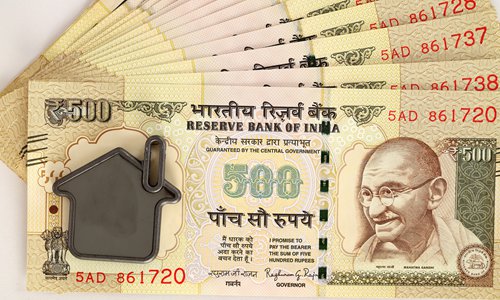HOME >> OPINION
Five reasons for India to embrace RCEP
By Zhang Jiadong Source:Global Times-Agencies Published: 2019/10/15 20:48:40

Photo: IC
Having dragged on for seven years, negotiations on the Regional Comprehensive Economic Partnership (RCEP) are making progress and are expected to wind up soon. The RCEP trade agreement covers 10 ASEAN members and six other Asia-Pacific economies - China, India, Japan, South Korea, Australia and New Zealand.
India may cut tariffs on products imported from its RCEP partners under this free trade agreement. If successful, this world's largest free trade deal covering nearly half of the world population and 30 percent of global GDP will benefit all participants.
India has had qualms about the RCEP over the past few years. It cast its eyes on opportunities that the RCEP may bring on the one hand, but feared short-term trade losses and negative economic impact on the other. As it is in a trade deficit with most RCEP members, India is concerned that the agreement will lead to further trade imbalances with other economies, and in particular that Chinese products will hurt India's manufacturing industry.
Such concerns do go down well with some Indian people, but the idea is not progressive. With China's economic restructuring, labor costs are rising and its focus is turning from high growth rate to quality-based development. The impact of China's manufacturing industry on India is declining. In the medium and long term, the benefits India can derive from RCEP far outweigh the disadvantages.
First, India is able to further enhance division of labor, bring its labor cost superiority into full play, and enjoy demographic dividend. Judging by its development level, India is a typical developing country; but by growth pattern, it seems more like a developed one: Its economy is driven by domestic consumption instead of manufacturing and export.
But the country's private consumption expenditure plummeted to 3.1 percent in the second quarter compared to 7.3 percent a year ago, resulting in economic growth rate falling to 5 percent.
Rather than being caught up in an economic cycle, India is facing a problem which has to do with the development model. To follow the traditional model of developing countries, India needs to further open its markets to attract foreign capital and technology. Getting involved in the RCEP is an important way for India to gain new impetus for economic growth. At this stage, when many Western countries are moving to protectionism, the RCEP matters even more for India.
Second, the RCEP will help India exploit the advantages it has in the software and service industries to the full. Once the RCEP is reached, the trade in goods will come with trade in services. India is likely to provide better institutional guarantees and access to domestic companies to fan out in markets in other RCEP economies.
Third, the RCEP will help accelerate India's economic reforms. Development in the South Asian nation faces quite a few challenges which stem from domestic institutional factors. There has not been enough competition in the Indian market to spur the growth of productivity. India also attaches more importance to industrial and commercial industries than the market. Many Indian enterprises are family businesses which usually join hands with political figures. This has not only affected economic efficiency, but also undermined the quality of Indian democracy. Once India joins the RCEP, the economy will gain vitality as economic efficiency is usually linked to market competition.
Fourth, the RCEP will improve India's trade imbalance in the long run. Once the deal takes effect, production and foreign investment in the country will rise. A large number of foreign manufacturing plants will be set up in India in the way they flocked to Vietnam and Bangladesh. Considering that the country has a labor advantage, India could be expected to become a major commodity surplus country.
Fifth, it will help stabilize China-India relations and regional security. Economic and trade ties are the foundation of international relations. Robust economic and trade relations will lead to better political and diplomatic ties.
India could find a firm economic foothold in South Asia by joining the RCEP. By being part of the deal, the second most populous state could consolidate its position as an economic hub in South Asia. Even if the partnership expands in the future, as the first South Asian member of the RCEP, India's voice will have more weight.
The author is a professor at the Center for American Studies, Fudan University. opinion@globaltimes.com.cn
Posted in: VIEWPOINT